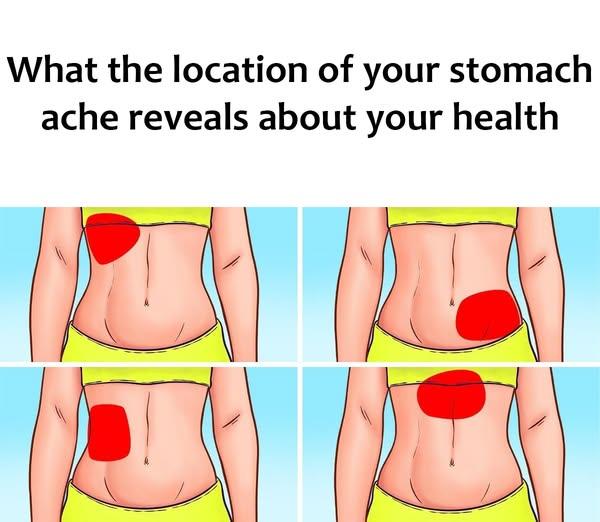Severe upper abdominal pain: ulcers
Ulcers can cause acute pain in the upper abdomen. They occur when the stomach lining is damaged, often due to the regular use of strong painkillers. Other symptoms of ulcers include changes in appetite, nausea, bloody or dark stools, unexplained weight loss, vomiting, and chest pain.
Causes: Frequent use of aspirin, ibuprofen, or other anti-inflammatory drugs can harm the stomach and cause ulcers.
Solution: To prevent ulcers, it is advisable to limit the use of painkillers and wash your hands before every meal. It is also essential to eat a diet rich in fruits and vegetables and to quit smoking.
Cramps and Bloating: Irritable Bowel Syndrome (IBS)
If your digestive system is sensitive, you may experience cramps and bloating in your stomach, which can trigger irritable bowel syndrome (IBS). This can either speed up digestion, leading to diarrhea, or slow it down, causing constipation.
Causes: The exact cause of IBS remains unknown, but it is believed to be related to a combination of abnormal movements of the gastrointestinal tract, increased sensitivity to bodily functions, and disrupted communication between the brain and the gastrointestinal tract.
Solution: It is recommended to identify the foods that trigger these symptoms and reduce their consumption.
Cramps and Diarrhea: Gastroenteritis (Stomach Flu)
If you experience sharp pain and cramps in the abdomen, accompanied by watery diarrhea (often without blood), nausea, vomiting, muscle aches or occasional headaches, and a low-grade fever, this may indicate gastroenteritis.
Causes: Gastroenteritis can be caused by eating contaminated food or water, or by using the personal items of an infected person.
Solution: To prevent infection, it is recommended to get vaccinated, wash your hands before eating, ensure everyone in the home uses separate personal items, and disinfect

